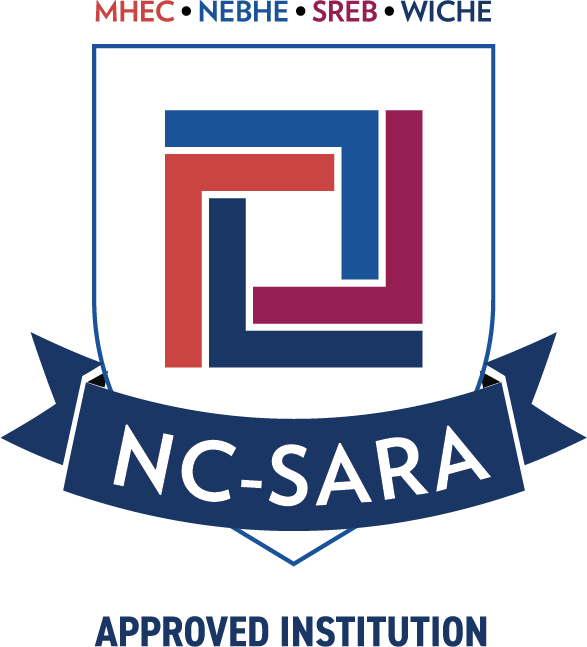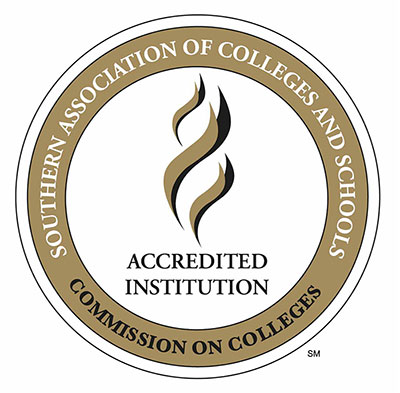State Authorization
 Albany State University offers fully online degree programs, certificate programs,
hybrid online programs and a large selection of courses in online and mixed-model
versions. Designed and taught by online faculty, ASU Distance Learning offers high
quality degree options with distance learning convenience and flexibility.
Albany State University offers fully online degree programs, certificate programs,
hybrid online programs and a large selection of courses in online and mixed-model
versions. Designed and taught by online faculty, ASU Distance Learning offers high
quality degree options with distance learning convenience and flexibility.
In compliance with State Authorization for the delivery of distance education, Online Degree and Certificate Programs may not be available in all states. Certain programs may require practicums, guided experiential learning, proctored examinations, internships, or student teaching which trigger State Authorization.
ASU has been approved to participate in the National Council for State Authorization Reciprocity Agreements. NC-SARA is a voluntary, regional approach to state oversight of postsecondary distance education. Institutions that are members of SARA are authorized to provide online education to students from all SARA member states (listed below).
- Alabama
- Alaska
- Arizona
- Arkansas
- Colorado
- Connecticut
- Delaware
- District of Columbia
- Florida
- Georgia
- Hawaii
- Idaho
- Illinois
- Indiana
- Iowa
- Kansas
- Kentucky
- Louisiana
- Maine
- Maryland
- Massachusetts
- Michigan
- Minnesota
- Mississippi
- Missouri
- Montana
- Nebraska
- Nevada
- New Hampshire
- New Jersey
- New Mexico
- New York
- North Carolina
- North Dakota
- Ohio
- Oklahoma
- Oregon
- Pennsylvania
- Rhode Island
- South Carolina
- South Dakota
- Tennessee
- Texas
- Utah
- Vermont
- Virginia
- Washington
- West Virginia
- Wisconsin
- Wyoming
For more information about the SARA initiative and the progress of state and institutional membership, please visit the NC-SARA Institution Directory.
CALIFORNIA RESIDENTS: California is NOT an NC-SARA member; however, public institutions do not need to seek approval to operate in California. Therefore, Albany State University does accept admission applications from online learners for distance programs from California residents. We look forward to speaking with you about our online programs and educational opportunities.
California has recently established a new process to manage complaints for out-of-state institutions serving online students in the state. The student complaint process is published by the California Department of Consumer Affairs.
Out of State Students - Professional Licensure Disclosures
If you are not a resident of Georgia, and you are taking an online course or program leading to professional licensure, Albany State University cannot confirm whether the course or program meets requirements for professional licensure in your state. Please check with the appropriate licensing board in your state to determine whether the course or program meets requirements for licensure in your state.
The following Albany State University programs fulfill the requirements for the state of Georgia, but they may not in your home state. You can find out whether a program meets the requirements for certification in your home state by reviewing the below public disclosures.
If the program at ASU does not meet the requirements in your home state, you have two options. One option is to sign an attestation that you do not intend to return to your home state after graduation. You will find two attestation forms below, one a fillable PDF and one Word document. You can complete either form and return it to the Office of Admissions. Another option is to attend an institution in your home state. If you have additional questions, you can contact either the Interim Associate Provost for Academic Affairs, Dr. Jason Armstrong.
Attestation - Fillable PDF
Attestation - Word Document
Accreditation
 Albany State University is accredited by the Southern Association of Colleges and Schools Commission on Colleges to award associate, baccalaureate, masters, and specialist degrees.
Albany State University is accredited by the Southern Association of Colleges and Schools Commission on Colleges to award associate, baccalaureate, masters, and specialist degrees.
Contact the Southern Association of Colleges and Schools Commission on Colleges at 1866 Southern Lane, Decatur, Georgia 30033-4097 or call 404-679-4500 for questions about the accreditation of Albany State University.
Student Complaint Resolution
Regulations associated with the federal student financial aid program include the following requirements. “The institution must make available for review to any enrolled or prospective student upon request, a copy of the documents describing the institution’s accreditation and its State, Federal, or tribal approval or licensing. The institution must provide its students or prospective students with contact information for filing complaints with its accreditor and with its State approval or licensing entity and any other relevant State official or agency that would appropriately handle a student’s complaint.”
External Complaints
If the problem cannot be resolved to your satisfaction through ASU's complaint procedure, your next step would be to take your complaint to an external dispute resolution. See procedures below.
Instructions for filing a complaint with our regional accreditor, Southern Association of Colleges and Schools (SACS): Complete the Commission’s Complaint Form and send two print copies to the President, Southern Association of Colleges and Schools Commission on Colleges, 1866 Southern Lane, Decatur, GA 30033-4097. (To access the Commission’s complaint policy, procedures, and the Complaint Form, please see Complaint Procedures Against the Commission or Its Accredited Institutions.) Please read the document carefully before submitting a complaint. View state-specific instructions for consumer complaint processes. Note that the complaint policy only addresses significant, documented, alleged non-compliance with the SACSCOC accreditation standards, policies or procedures. Complainants are expected to have attempted to resolve the issue through the institution’s complaint processes before filing a complaint with SACSCOC. The SACSCOC complaint process is not intended to be used to involve the Commission in disputes between individuals and member institutions or to cause the Commission to interpose itself as a reviewing authority in individual matters; nor does the policy allow the Commission to seek redress on an individual’s behalf. The primary purpose of the SACSCOC complaint procedure is to acquire valuable information regarding an accredited institution’s possible non-compliance with accreditation standards, policies and procedures rather than to resolve individual disputes. Complaints must be tied to specific standard numbers from The Principles of Accreditation: Foundations for Quality Enhancement.
For Federal Financial Aid and other federal obligations:
Instructions for filing a complaint with the U.S. Department of Education in regard to Title IV (financial aid, civil rights violations or discrimination) can be found here.
Complaint Resolution for Fully-Online Out of State Students
Fully-online students who live outside the state of Georgia and have completed the ASU Institutional Complaint Procedure may appeal ASU's decision to the Georgia State Authorization Reciprocity Agreement (GA-SARA) Portal. Visit Student Resources to find information on making complaints to GA-SARA.
At any time, please feel free to contact us at ASU Distance Learning.
Phone: (229) 500-2909
Email: asuonline@asurams.edu
